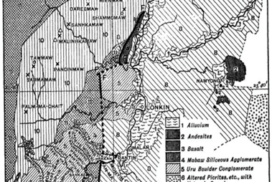SERIES FOUR (Alphabetical order)
U Khin Maung (A retired diplomat)
capital (adj) crime; capital (adj) punishment
Capital crime means a crime for which the punishment of death may be inflicted.
Capital punishment means the punishment of death.
catch-22: (n & adj)
Catch-22 means a situation in which a desired outcome or solution is impossible to attain because of a set of inherently illogical rules or conditions. It also means the rule or conditions that create such a situation.
Catch-22 is used to refer to a situation or predicament characterized by absurdity or senselessness. It is also used to express a contradictory or self-defeating course of action.
The term catch-22 is meant that a tricky or disadvantageous condition.
cause célebre (Fr): (n)
Cause célèbre means an issue arousing widespread controversy or heated public debate. It also means a celebrated legal case.
The plural of cause célèbre is causes célèbres.
[French: cause, case + célèbres, celebrated.]
caveat (Lat): (v & n)
(n)
Caveat means a warning or caution: e.g., a final caveat. It is also a term meaning a qualification or explanation.
Caveat as a legal term is used to refer to a formal notice filed by an interested party with a court or officer, requesting the postponement of a proceeding until the filer is heard.
(v)
Caveat means to qualify with a warning or clarification:
e.g., The spokesperson caveated the statement with a reminder that certain facts were still unknown.
cession: (n); session: (n)
Cession is a giving up, granting, or the act of ceding. It is used often by nations or people who cede land.
Session is a meeting or gathering, and is used by deliberative bodies: e.g., The Supreme Court of Myanmar is in session.
chancery: (n); embassy: (n); legation: (n)
Chancery is used to refer to the building where the head of mission and his staff have their offices.
Embassy is the official residence of an ambassador. It is also the duty and mission of an ambassador.
Legation means a group of diplomats representing their country in another country. It also means the building in which a group of diplomats work.
An embassy is under an ambassador, and a legation is under a minister, envoy, charge d’affaires, or some other diplomatic agent.
chardonnay: (n)
Chardonnay means a dry white table wine, originally from burgundy, French
chargé d’affaires (Fr): (n)
By the term chargé d’affaires it is meant that the most senior member of an Embassy is entrusted with the task of representing the ambassador when the latter is not around.
The plural of chargé d’affaires is chargés d’affaires.
[French: charge, charged, in charge + de, with, of + affaires, affairs.]
chattel: (n)
Chattel as a legal term means an article of personal movable property. It also means a slave.
chattel mortgage: (n)
Chattel mortgage means a mortgage using movable personal property rather than real estate as security.
chauvinism: (n)
Chauvinism means “militant devotion to and glorification of one’s country; fanatical patriotism.”
Chauvinism also means “prejudiced belief in the superiority of one’s own gender, group, or kind”.
[French Chauvinism, after Nicolas Chauvin, a legendary French soldier famous for his devotion to Napoleon.]
circumstantial (adj) evidence
Circumstantial evidence is the evidence from which the fact-finder may infer the existence of the fact in issue, but which does not directly prove the existence of the fact: e.g., fingerprints, possession of stolen property or the weapon used, opportunity and motive.
client state: (n)
Client state is used to refer to a country that is dependent on the economic or military support of a larger, more powerful country: e.g., each superpower continues to arm its client states.
clientèle (Fr): (n)
Clientèle is a term meaning the clients of a professional person or practices considered as a group.
Clientèle also means a body of customers or patrons: e.g., a restaurant clientèle.
[French Clientèle, from Latin clientêla, clientship, from cliêns, client]
Code: (n)
Code is a compilation of legal principles consolidated into a single enactment and generally having relation to the same subject matter. E.g., a penal code.
codification: (n)
Codification means “putting all laws together into a formal legal code.” The effect of a codification is to eliminate archaic expressions, arranges the law in force by subject matter and rewrite unclear and poorly drawn passage.
cognizance: (n)
Cognizance is the action of taking judicial notice.
comity: (n)
Comity means the courtesy among political entities (as nations or courts of different jurisdictions). This should not be confused with full faith and credit which generally obliges one state to follow the law of the other states.
Reference:
(1) Black’s Law Dictionary By Bryan A. Garner
(2) အသက်တစ်ရာမနေရ။
အမှုတစ်ရာမက တွေ့ရတတ်သည်။
(3) Law and custom in Burma and the Burmese Family.
(4) Dr Maung Maung B.L (Rangoon),
(5) J.S.D (Yale), LL. D (Utrecht), of Lincoln’s Inn,
6) Barrister-at-law.
Bibliography
– B. Sen, “A Diplomat’s Handbook of International Law and Practice”, Third Revised Edition, Martinus Nijhoff Publishers, 1988.
– Bryan A. Garner, “A Dictionary of Modern Legal Usage”, Oxford University Press, New York, 1987.
– DPO’ Connell, “International Law” London. Stevens and Sons Limited, Dobbs Ferry, New York. Oceana Publications, Inc 1965.
– Encyclopedia Britannica, 15th Edition,
Encyclopedia Britannica, Inc, 1977.
– Harold Nicolson, “Diplomacy”, Oxford University Press, London, 1969.
– Henry Campbell Black, “Black’s Law Dictionary”, Sixth Edition, St Paul, Minn. West Publishing Co 1990
– L. Oppenheim, “International Law, A Treatise”. ELBS. Edition first published 1966
– Radin, “Law dictionary” second edition, Oceana Publications, Inc Dobbs Ferry, NY 1970.
– Sir Earnest Satow, “A Guide to Diplomatic Practice”, ed, Sir Neville Bland, Longmans, 1968.
– The American Heritage Dictionary of the English Language, Third Edition is licenced from Houghton Mifflin Company. Copyright © 1992 by Houghton Mifflin Company.















